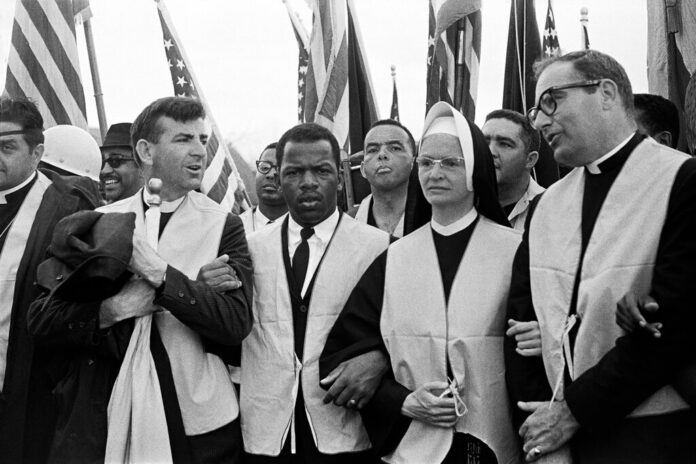
HIS TRUTH IS MARCHING ON | Jon Meacham | BUY HERE
BOOK REVIEW
By Eric Foner, American Historian | The New York Times
The recent death of John Lewis, the most prominent surviving leader of the civil rights movement, produced an outpouring of adulation, from a funeral addressed by three former presidents to a prime-time mash-up of history and entertainment hosted by Oprah Winfrey. Lewis deserved the accolades, but elevating him to the status of national icon may obscure how much of his agenda remains to be accomplished, as thousands of Americans are reminding us each day.
Jon Meacham, the best-selling author of a number of biographies as well as “The Soul of America,” a celebration of American democratic values, opens “His Truth Is Marching On” in a hagiographic vein… more
 ABOUT THE BOOK
ABOUT THE BOOK
His Truth Is Marching On: John Lewis and the Power of Hope with an afterword by John Lewis
An intimate and revealing portrait of civil rights icon and longtime U.S. congressman John Lewis, linking his life to the painful quest for justice in America from the 1950s to the present—from the Pulitzer Prize–winning author of The Soul of America
John Lewis, who at age twenty-five marched in Selma, Alabama, and was beaten on the Edmund Pettus Bridge, is a visionary and a man of faith. Drawing on decades of wide-ranging interviews with Lewis, Jon Meacham writes of how this great-grandson of a slave and son of an Alabama tenant farmer was inspired by the Bible and his teachers in nonviolence, Reverend James Lawson and Martin Luther King, Jr., to put his life on the line in the service of what Abraham Lincoln called “the better angels of our nature.” From an early age, Lewis learned that nonviolence was not only a tactic but a philosophy, a biblical imperative, and a transforming reality. At the age of four, Lewis, ambitious to become a minister, practiced by preaching to his family’s chickens. When his mother cooked one of the chickens, the boy refused to eat it—his first act, he wryly recalled, of nonviolent protest. Integral to Lewis’s commitment to bettering the nation was his faith in humanity and in God—and an unshakable belief in the power of hope.
